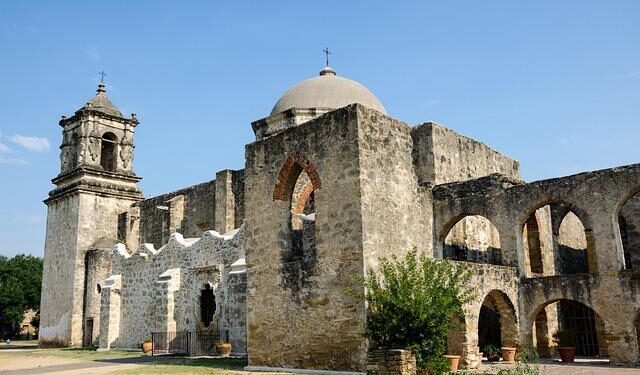In a politically charged atmosphere that reflects the deep divisions within Chilean society, hard-right former lawmaker José Antonio Kast has emerged as the frontrunner in a contentious presidential runoff election. His rise has sparked fervent debate and concern among both supporters and opponents, as Kast’s populist and nationalistic platform promises to reshape the country’s political landscape. This election is seen not only as a pivotal moment for Chile but also as a barometer for broader trends in global politics, where hard-right movements are gaining traction. With the nation at a crossroads, the implications of this runoff extend far beyond the ballot box, potentially redefining the future of democracy and governance in Chile.
José Antonio Kast Gains Momentum in Chile’s Presidential Runoff Amid Growing Polarization
In a political landscape increasingly defined by division, José Antonio Kast has emerged as a formidable candidate in Chile’s presidential runoff, reflecting a notable shift towards the far-right. With his platform centered on criticism of the prevailing leftward trend, Kast appeals to a growing base frustrated by ongoing social and economic challenges. His strong stance against crime, pro-business policies, and conservative social values resonate particularly with voters seeking stability in a tumultuous environment. As support for Kast grows, concerns about his potential to exacerbate polarization in an already divided electorate are mounting.
Supporters hail Kast for his straightforward rhetoric and commitment to traditional values, while detractors warn of the dangers posed by his divisive proposals. The candidates’ starkly contrasting visions for Chile’s future have intensified debates across the country, making the upcoming election crucial. Key points of contention include:
- Crime and Security: Kast advocates for tougher measures to curb rising crime rates.
- Economic Reform: He promotes a free-market approach, aiming to attract foreign investment.
- Social Policies: His conservative stance on social issues aims to appeal to traditional family values.
| Issue | Kast’s Position | Opposition View |
|---|---|---|
| Crime | Tough on crime | Focus on root causes |
| Economy | Pro-business reforms | Welfare expansion |
| Social Issues | Conservative values | Progressive reforms |
Implications of Kast’s Hard-Right Policies on Chile’s Political Landscape and Economy
In a decisive shift within Chile’s political framework, the rise of José Antonio Kast and his hard-right policies marks a significant departure from the country’s progressive past. These policies advocate for a free-market approach, the curtailing of social programs, and a strong stance on law and order, aiming to appeal to a populace weary of crime and economic uncertainty. The implications of such a pivot could lead to:
- Economic Liberalization: A push for deregulation and privatization that may attract foreign investments but raises concerns over social equity.
- Polarization of Society: Increased division among citizens, as socioeconomic disparities are likely to widen under economic austerity measures.
- Impact on Social Policies: Potential rollback of health, education, and welfare initiatives, risking the quality of life for the most vulnerable populations.
As Kast positions himself against leftist ideologies, his administration could further entrench ideological divides. Observers are concerned that such a hard-right stance might foster societal unrest, exemplified by the civil unrest observed during the 2019 protests. Additionally, Kast’s emphasis on national security may lead to increased militarization of policing, raising human rights concerns. The following table encapsulates the potential societal impacts of Kast’s policies:
| Policy Area | Potential Impact |
|---|---|
| Economic Policy | Increased inequality and reduced social mobility |
| Social Welfare | Cutbacks and potential decline in public health and education quality |
| Law Enforcement | Enhanced security measures, possible erosion of civil liberties |
Navigating the Path Forward: Recommendations for Voters and Stakeholders in Chile’s Shifting Democracy
As Chile navigates the turbulent waters of a shifting political landscape, it becomes imperative for both voters and stakeholders to engage thoughtfully with the democratic process. To foster a more inclusive and constructive dialogue, stakeholders should consider employing strategies that emphasize collaboration, transparency, and civic education. By facilitating open forums and town hall meetings, local leaders can provide platforms for citizens to express their concerns and aspirations, ensuring that a diverse range of voices contributes to shaping policy and governance.
Furthermore, voters must approach this moment with a critical mindset. Initiatives aimed at improving electoral literacy and understanding the implications of their choices are critical. Here are some recommendations for voters to consider:
- Stay Informed: Regularly consume diverse news sources to grasp the varying perspectives on candidates and their policies.
- Engage in Dialogue: Discuss political issues with family and friends to broaden your understanding and challenge your views.
- Participate in Local Governance: Attend community meetings and forums to stay connected with local issues and elected officials.
Key Takeaways
As Chile approaches the pivotal presidential runoff, the emergence of hard-right former lawmaker José Antonio Kast as a leading candidate underscores a significant shift in the country’s political landscape. His rise has not only reignited debates over issues such as immigration, law and order, and economic policy but also highlighted the deep divisions within Chilean society. As voters prepare to head to the polls, the outcome of this election may not only shape the nation’s future but also serve as a bellwether for the broader political trends sweeping across Latin America. With both candidates presenting starkly different visions for the country, the stakes are high, and the world will be watching closely.














